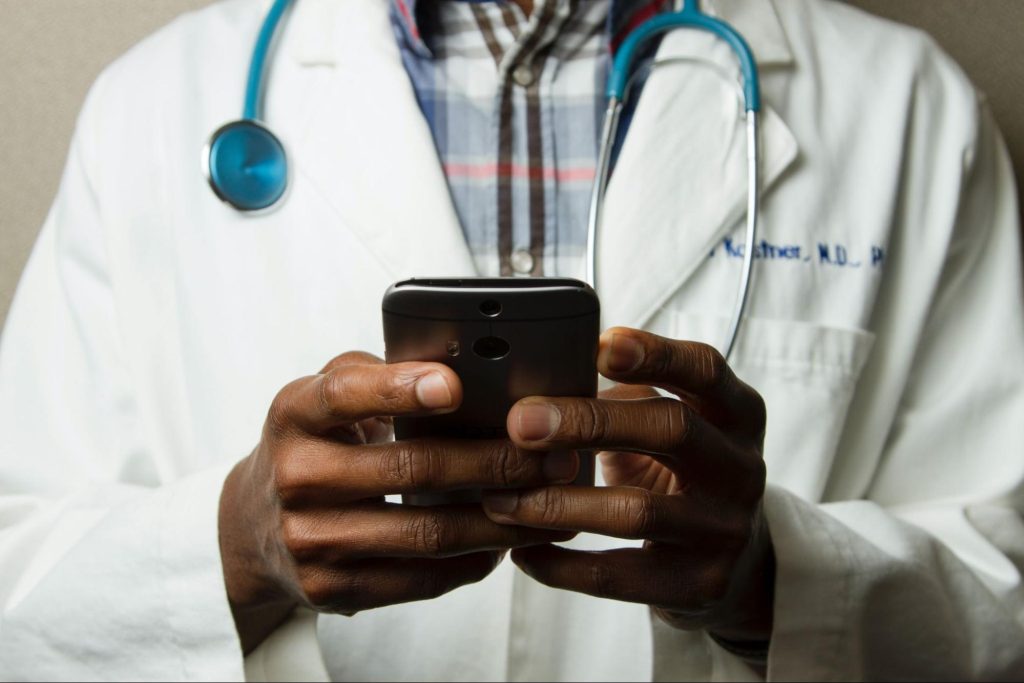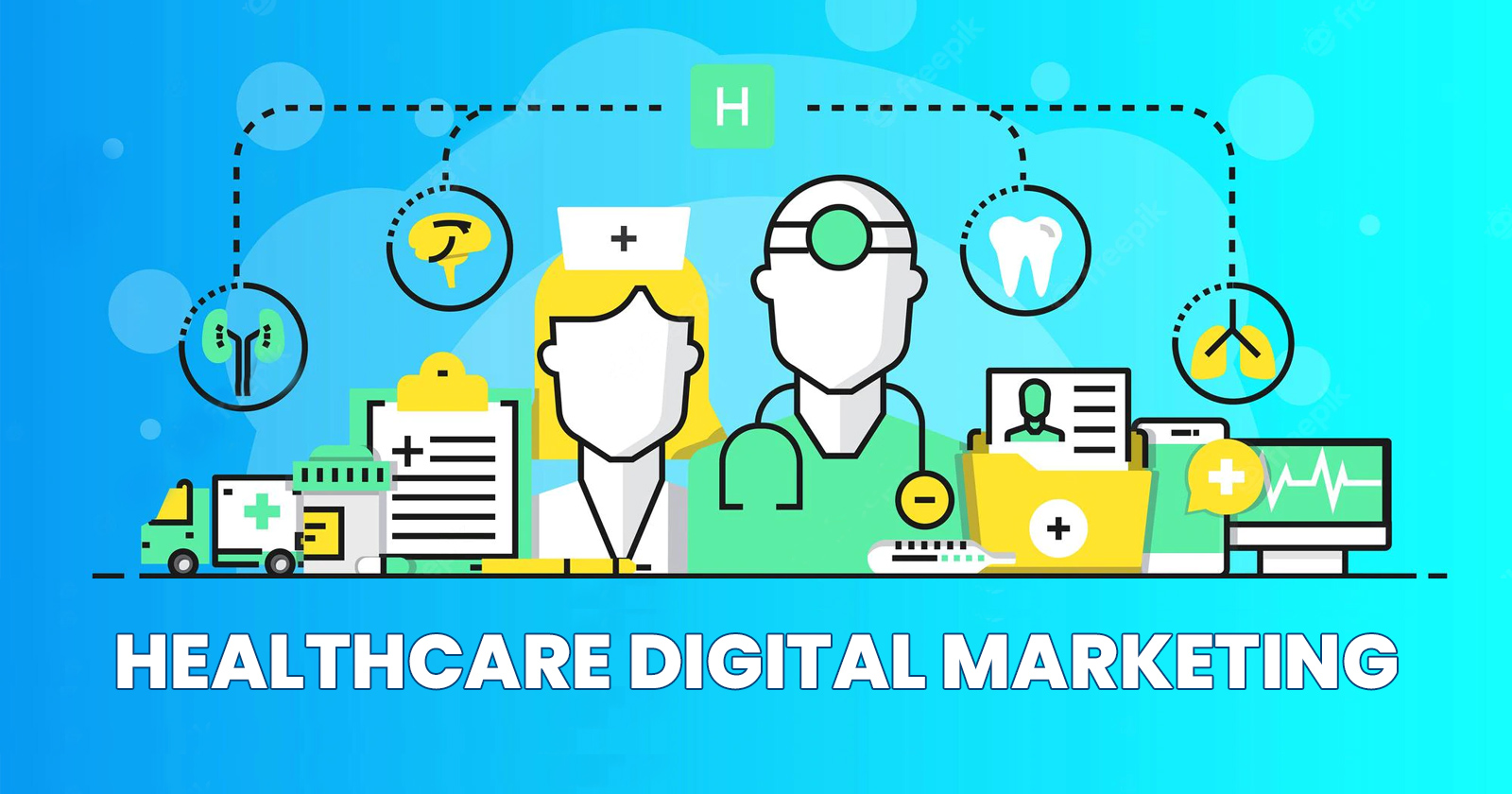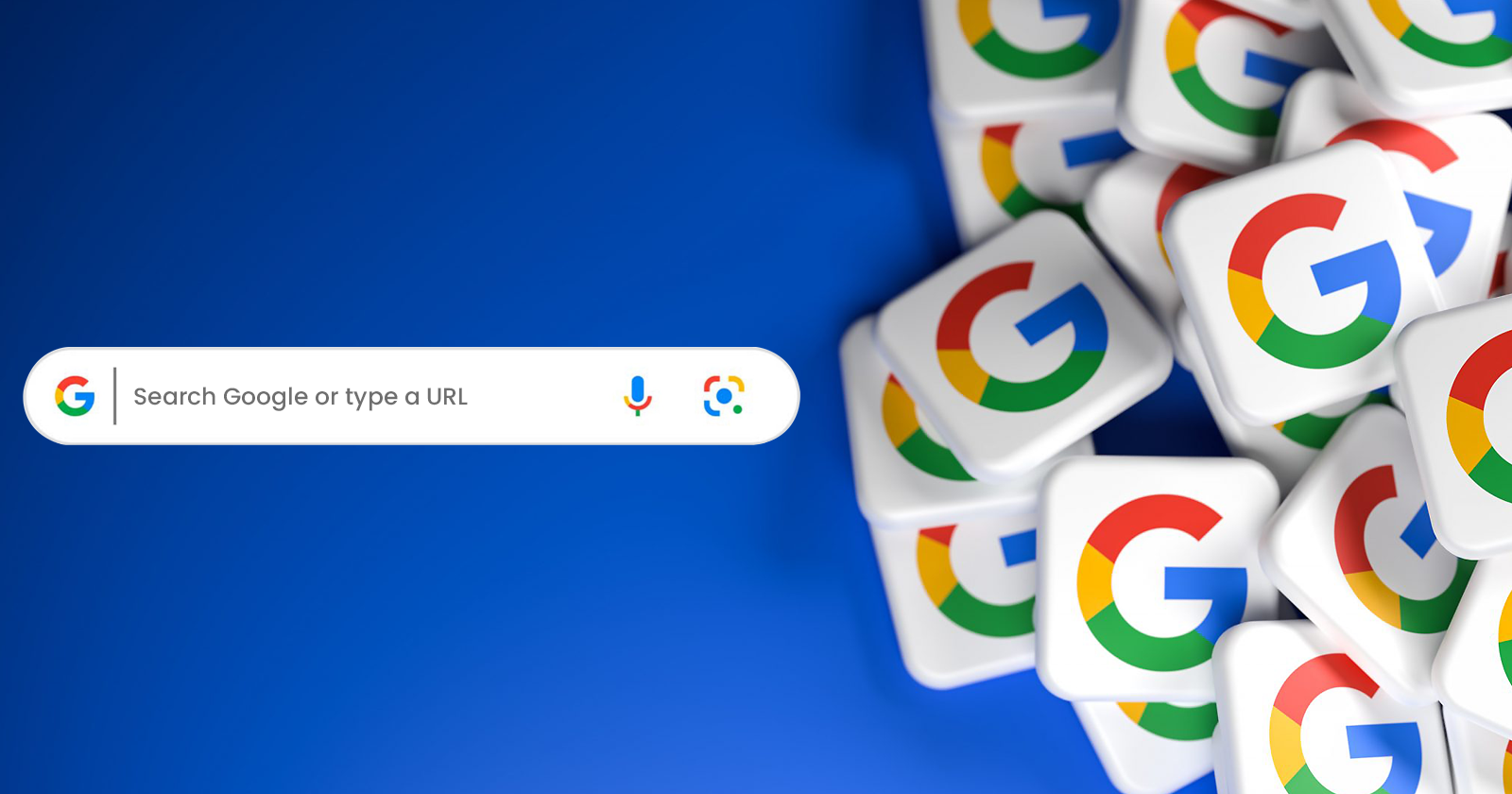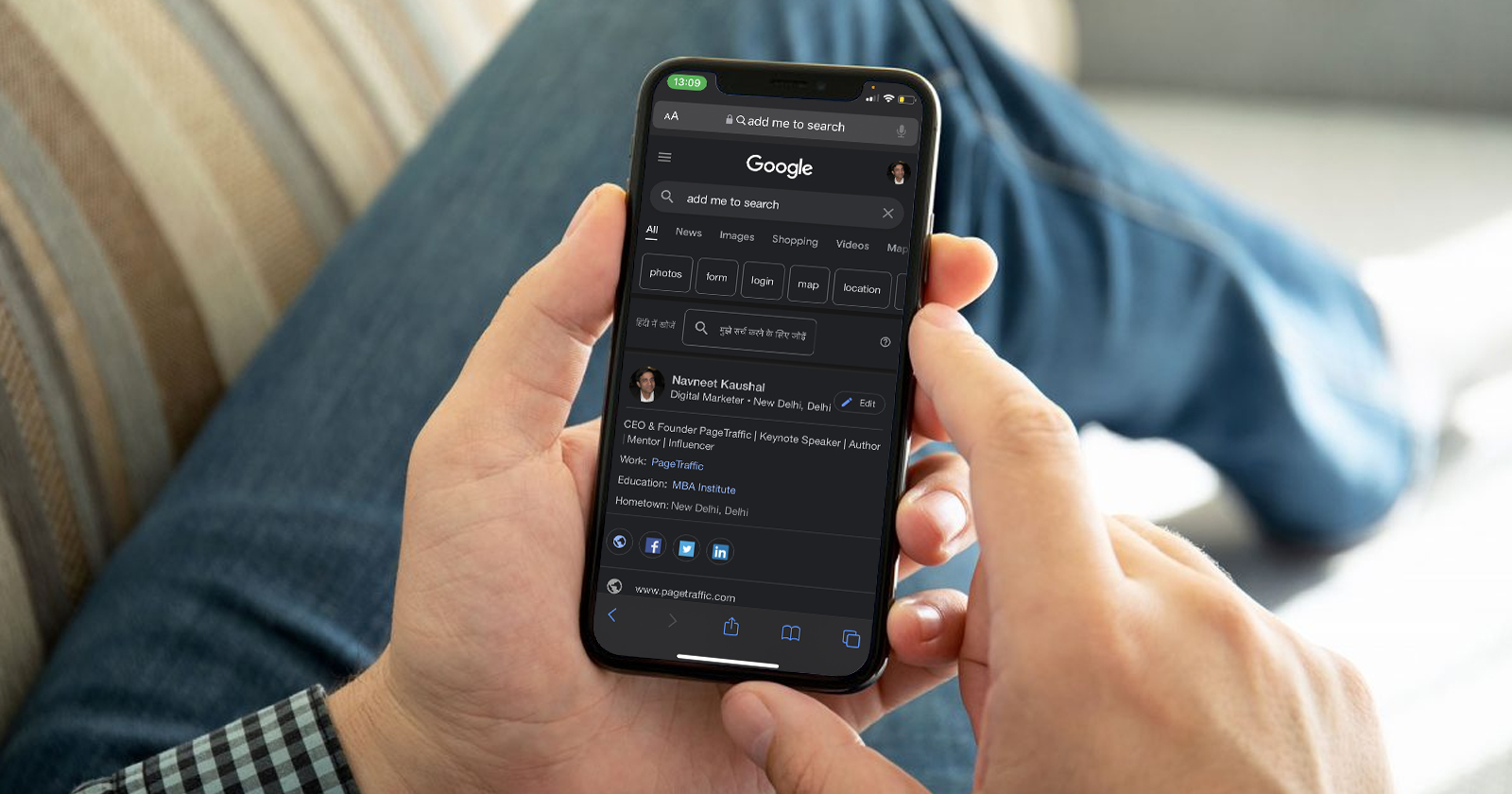As a healthcare provider, you know how important it is to keep up with the latest trends in your industry. It can be challenging, but staying on top of digital marketing is more important than ever. Fortunately, there are plenty of resources available to help you get started. This blog post provides an overview of some of the most important aspects of healthcare digital marketing. We’ll discuss how to create a strong online presence, reach out to new patients, and use social media to connect with your audience.
So, if you work in healthcare, now is the time to meet your clients where they look first, which is the internet, and expand your digital footprint. And the best way to do so is to develop a solid healthcare digital marketing strategy is to sign up for a healthcare medical SEO package from a reputed company.
The internet has caused a seismic shift in how people seek healthcare in recent years. Massive shifts in the healthcare space can already be seen in the form of emerging digital health platforms, telemedicine, virtual reality, R&D, and even artificial intelligence. One example is Google Health AI, which is being developed to bridge the gap between people and health information.
What is Healthcare Digital Marketing?
Healthcare digital marketing is the process of promoting your healthcare services to potential patients via online platforms. For your healthcare services, digital marketing is a profitable investment option, given its high ROI.
Approximately 88% of people look online for health information, and 70% say the health information they find influences their treatment decision. Digital marketing allows you to stay in touch with current and new patients whenever they are in need.
Importance of Healthcare Digital Marketing in 2023
Every healthcare marketer should be aware of the following five key trends:

Customers are now voracious researchers
Consumers are no longer satisfied with simply believing what a doctor says. They would rather do their homework before going to the doctor. This means that the doctor no longer has the final say on medications, hospitals, and treatment, among other things.
Healthcare is more like a collaboration between doctors and patients, so digital marketing for hospitals is more appropriate.
Healthcare marketers focus on payers and consumers
There are various audiences for healthcare marketers. This is the primary ‘who’ based on the product or service being offered.
Doctors, unsurprisingly, are the primary marketing target. So why not? They continue to recommend, prescribe, advocate for, and purchase products and services.
However, as decision-making shifts to healthcare consumers and payers, doctor decision-making is gradually shrinking. As a result of this emerging trend, healthcare marketers must increasingly target payers and consumers.
Digital channels are eclipsing traditional marketing channels
While digital marketing is permeating almost every industry, healthcare is one of them. In the last few years, there has been a significant increase in the preference for digital marketing over traditional marketing in healthcare.
According to a study, digital sales material, mobile apps, and social media are seeing the most growth in biotech, medical, diagnostics, and pharmaceutical device marketing budgets. Because consumer marketing tactics are increasingly shifting to digital ads, social media, and mobile apps, the shift to digital channels in the healthcare industry is unsurprising.
Best Practices For Healthcare Digital Marketing
People are turning to the internet to get quick access to a specialist from the comfort of their own home, which has fueled the growth of digital marketing. According to a McKinsey survey, more than 75% of respondents prefer to communicate with their specialists online.
Here are some of the most effective strategies and best practices for healthcare digital marketing. These will help you gain an edge over your competitors.

Consider Local SEO
People who look for an optometrist, therapist, or nursing home are more likely to contact a physical medical center. Over 70% of people who conduct health-related searches online never look past the first page of results. Hence, it is important that your listing ranks among the top results in your area.
Also, Read: Local SEO vs National SEO: Which one to Choose?
Local SEO entails optimizing your medical practice’s pages for local searches.
In its most basic form, local SEO is about increasing your website’s visibility for people in your area who are likely to need your healthcare services, as well as providing your site’s visitors with an excellent experience.
Local SEO optimization for your healthcare website:
- Increases your site’s crawlability for search engine web crawlers and boost your healthcare website’s ranking in local searches to reach more local patients.
- Makes a good first impression with a well-designed website, which encourages patients to interact with your practice online and become acquainted with your brand.
- Improves your website’s user experience (UX) for patients and their perception of your brand.
- Matches your content to the search intent of your local audience and provide valuable information to patients.
Also Read: A Complete Guide to Local SEO for New Business Owners
Social Media Marketing
Businesses that use social media marketing in conjunction with search engine optimization and ad campaigns outperform those that do not.
Using social media to attract customers is a great marketing method. Social media platforms enable hospitals and healthcare facilities to connect with potential patients one-on-one while also providing valuable information to assist them in making the best health-care decisions.
To begin with, healthcare is a people-oriented industry. You must first understand what people want and what motivates them in order to tailor your communication to their needs. You should also be able to address them directly. All of this is available on social media.
It is an effective communication tool and one of the most effective ways to market any service online. Furthermore, companies that do not use social media appear dated and out of touch. In the fast-paced, ever-changing world of healthcare, those are not words you want associated with you.
PPC Marketing
PPC is a type of advertising service provided by search engines, social media, and other platforms in which you only pay when a lead clicks on your ad. Google Ads, for example, provides text and image ads. Text ads are the advertisements that appear on the first page of search engines. Image ads are those infrequent display ads that appear on your screen. These ads’ algorithm is based on your search history.
PPC ads increase the visibility of your healthcare service website on search engines and generate more traffic. You can track the progress of your PPC ads to see what works and what does not. In 2022, the Healthcare industry is expected to spend $38.06 billion on advertising globally.
Over $10.5 billion of this is expected to be spent on PPC advertising by over 7 million healthcare service providers.
Content Marketing
As in many other industries, content marketing has proven to be one of the most effective tools for healthcare professionals to engage with patients. Content marketing allows you to share your expertise with patients through articles, blog posts, infographics, video content, and more.
For example, if you are a dietician, you can share diet tips, nutritional advice, fitness advice, and much more. The goal is to provide useful information. Avoid making your content promotional. Everything else falls into place if you focus on providing value. Additionally, avoid using too many medical terms. It reduces the appeal of your content.
Content that uses fewer medical terms is more easily understood by the audience. The following statistic demonstrates the significance of content marketing in the healthcare industry. Healthcare content marketing generates three times the ROI of outbound marketing and requires 62% less ad spend than other marketing strategies.
In a year, healthcare video marketers generate 66% more targeted leads. A content marketing strategy is used by 83% of health organizations.
Mobile Advertising
Smartphones are used by everyone, young and old. Mobile marketing in the healthcare sector is aimed at people who use mobile devices with internet access, such as smartphones, tablets, and other handheld devices.
Some popular ideas that work well include text messages, in-game mobile marketing, mobile image ads, mobile search ads, and location-based marketing, geofencing, and cross channel marketing. Mobile marketing allows you to not only reach a larger audience but also share health-related information and build your reputation.
Here is some solid data on the impact of mobile marketing in the healthcare industry.
- 44% of people who look up hospitals on their phones make an appointment.
- Mobile devices account for 47.6% of all healthcare email opens.
- Health and fitness apps are available on 19% of mobile devices.
Email Marketing
If you want to keep a healthy, close relationship with your patients, email marketing is one of the most cost-effective ways to do so. Personalize your email messages with demographic information such as age, interest, location, health condition, and more. Always create welcoming messages, enticing subject lines, and compelling calls to action.
Implementing an effective email marketing strategy can help your hospital generate more leads and patients. The statistics on the impact of email marketing in the healthcare sector are provided below.
- When it comes to acquiring new leads, email is 40 times more effective than Twitter and Facebook.
- Email is the primary source of lead generation for 89% of digital health marketers.
- The ROI on email marketing is $44.25 for every $1 spent.
What Are the Benefits of Investing in Digital Healthcare Marketing?

Digital marketing is not only a profitable strategy for gaining more patients, but it is also a cost-effective way of advertising a healthcare service.
Also, Read: Importance Of Digital Marketing – 19 Things You Must Know
Let’s look at some of the most important benefits.
Reduced Cost-Per-Acquisition (CPA)
Implementing a digital marketing strategy to acquire new clients can help you save money on advertising overall. According to a survey conducted by a US vein practice, medical centers spend more than $314 and $348 per patient on print and TV advertisements, respectively.
This is a lot of money when compared to what they will have to spend on a digital marketing campaign.
Location Based Targeting
Businesses in the healthcare industry are frequently aware of the demographic they wish to target with their marketing campaign. The question is how to find this audience and effectively target them. Utilizing digital marketing can assist healthcare organizations in overcoming this challenge. It enables businesses to target their marketing efforts much more precisely than traditional marketing.
Improved Brand Visibility
With the health industry becoming increasingly competitive, having a strong brand can assist healthcare businesses in differentiating themselves from competitors. A company can use digital marketing to improve brand metrics such as brand awareness, brand reputation, brand perception, and more. As a result, having better brand metrics encourages customer purchases and long-term success.
Cost effective marketing
Although some healthcare organizations may have large marketing budgets, this is not usually the case for most small and medium-sized healthcare organizations. Digital marketing allows brands to save money on marketing and encourages a high return on investment. Marketing via digital marketing mediums such as social media, email, and search engines is significantly less expensive than marketing via traditional mediums such as television, newspaper, and billboards.
Improved Search Engine Ranking
One out of every twenty Google searches is for healthcare-related information, such as health and wellness tips, disease symptoms, diet advice, and so on.
There is good news. You can increase your chances of appearing on Google’s first page by using effective digital marketing and search engine optimization.
Increased patient referrals
With digital marketing, you can use a variety of professional tools and software to scale your campaign for maximum performance and drive quality leads to your healthcare service.
Conclusion
There is no denying that healthcare marketing has become the new standard for a successful professional health service. The value of digital marketing in the healthcare industry cannot be overstated.
Establishing an online presence is critical to the growth of your healthcare service because it allows you to reach out to a larger audience who spends time online. In the long run, the most important factor for a successful digital marketing strategy will be a patient’s experience and brand reputation.
Frequently Asked Questions
Why is healthcare marketing different?
Healthcare marketing is a difficult challenge that necessitates marketers adapting to changing times and regulations. Because a person’s health and a facility’s ability to provide care delivery are involved, it also necessitates a different approach to connecting with consumers than other types of marketing.
What is the main benefit of healthcare digital marketing?
With digital marketing you can reach more prospective clients by spending way less money than what you spend on traditional methods.
Is healthcare digital marketing affordable for small scale healthcare providers?
Digital marketing packages are available in various price ranges, starting as low as $299. You can definitely find one that suits your budget.


























